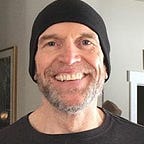Knowledge, Conviction, and Belief [4]
The period of roughly 2010–2016 apparently was a breakthrough time for neuroscience and the study of consciousness. About then, a scientific consensus began to emerge that the conscious human mind was generated by the brain — or, as some put it, “the mind is what the brain does.”
In a 2016 article[1], University of Sussex professor of cognitive and computational neuroscience Anil K. Seth wrote that,
“In my own research, a new picture is taking shape in which conscious experience is seen as deeply grounded in how brains and bodies work together to maintain physiological integrity — to stay alive.”
Since then, other brain researchers have added a third essential component: our environment, particularly our cultural setting and its institutionalized belief systems.
Brain, body, environment — that’s it, that’s what brain science has come up with. It went looking for the soul and didn’t find it. As physician and researcher Paul Singh also wrote in 2016[2]:
“The idea of a transcendent self is a myth; the truth is that the self is a constructed self.”
Not only that, but when a consciousness based purely in physicality replaces traditional belief in an eternal, transcendent soul temporarily at home in a physical human body, other companion notions about the self, consciousness, and free will also come tumbling down. Singh admitted this wasn’t going to be easy news to swallow:
“I will be the first one to admit that the debates about the nature of free will, consciousness, and the self are far from over. It is not, however, because we don’t know the answers, but because we are not at a stage of human evolution and progress yet for people to accept such radical ideas. Such truths are scary in the sense that they undermine our ordinary and commonsensical beliefs about human nature and seem to threaten values that we hold dearly — one of the most important of which is moral responsibility.”
Difficult, yes, but not impossible if you can suspend allegiance to the things you’re convinced of and convicted about, and instead give scientific knowledge a try. Singh makes his case with impassioned advocacy of science and the scientific method:
“I believe, however, that the truthfulness of a fact should be judged on its own merit rather than based on its social and emotional implications for the well-being of an individual or society. Truth should be acknowledged first and then solutions sought that will be implemented in light of the good and bad that truth has revealed, not the other way around. Truth is about truth and not about convenience or about making us feel good about ourselves.
“We should never believe a claim to be true simply because on one can prove it to be false. Theologians are experts at this kind of nonsense. Are delusional people making things up? Evidence shows that the human brain is universally delusional in many ways and therefore people who promote superstitions are not particularly more delusional that the rest of us. It is just that examples of religious delusions are rather classic examples of how the brain creates illusions and delusions. The use of logic and scientific skepticism is a skill that can be used to overcome the limitations of our own brains. This skill is like any other skill such as learning to play the piano. It involves training in metacognition as well as basic education in basic sciences.”
Frankly, that kind of rhetoric invariably come across as bombastic and opinionated and therefore easy for those convinced otherwise to dismiss. The well-worn neural pathways of our own brains are deeply rutted with their own notions of what is true, and not about to change to a new paradigm just because someone else is convinced it is the “Truth is about truth.”
On the other hand, in my personal experience, I’ve found that the precursor to scientific knowledge — “scientific skepticism” — is in fact a “a skill that can be used to overcome the limitations of our own brains.” I’ve been developing the skill gradually for years, without intentionally doing so. I was no scientist; I’d spent a lifetime in the humanities; my allegiance was with Romanticism, not the Enlightenment. I was not out to find or prove truth, or convince anybody of it. But I was looking for new thoughts, and years of reading and reflecting — like water carving sandstone — slowly brought my thinking to a new place.
The first time I read about the “materialist” version of consciousness I thought it was just plain odd, which made me highly skeptical. Ironically that skepticism eventually sharpened into a practice that brought me where I don’t find the materialist idea odd at all; in fact, it seems odd to think the way I used to. It now seems simple and obvious that everything we experience is processed within the confines of our largest organ — our skin — and that it has to be that way because, as a biological organism, there’s no other place where it can happen. Even if we think about an eternal, transcendent soul, we do so from our ephemeral, fleshly point of view. That’s all the equipment we’ve got.
Continued next time.
[1] The Real Problem: It looks like scientists and philosophers might have made consciousness far more mysterious than it needs to be, Aeon Magazien (Nov. 2, 2016)
[2] The Great Illusion: The Myth of Free Will, Consciousness, and the Self.
Originally published at http://iconoclast.blog on October 4, 2019.
